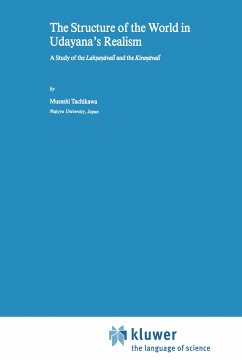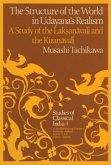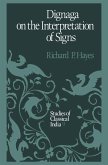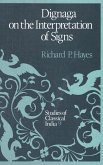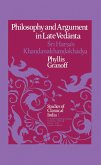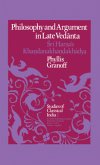Books dealing with individual philosophers as well as annotated translations of their works are very much in need in the field of classical Indian philos ophy. Hence the research efforts of modern scholars should increasingly be devoted to this objective. Professor M. Tachikawa has selected a very short elementary treatise of Udayana as well as some portions of a larger work of the same author to supplement the first. His aim is to present to us, in Udayana's own term, how he (Udayana) sees the Nyaya-VaiSe~ika system in a synoptic fashion. I wish to take this opportunity to say a few things about Udayana and the Nyaya-Vaise~ika system. UDAYANA Udayana was a pre-eminent philosopher and an astute logician of the eleventh twelfth century India. He belonged to the Mithila region of the present Bihar 1 state. In the history of the Nyaya-V aise~a, he holds a very crucial position. In fact, two different schools of philosophy, Nyaya and Vaise~a, belonging to ancient India, merged into one in the writings of Udayana. As it has been said, in Udayana, the happy marriage between Nyaya and Vaise~ika was com plete - the Vai
e~ika ontological scheme (padiirthas or system of categories) was in this way combined with the pramiir:za doctrine (logic and a theory of knowledge) of Nyaya to produce what later came to be designated as Navya nyaya.
e~ika ontological scheme (padiirthas or system of categories) was in this way combined with the pramiir:za doctrine (logic and a theory of knowledge) of Nyaya to produce what later came to be designated as Navya nyaya.

